Here's Deezer's grand plan to take over the music-streaming world
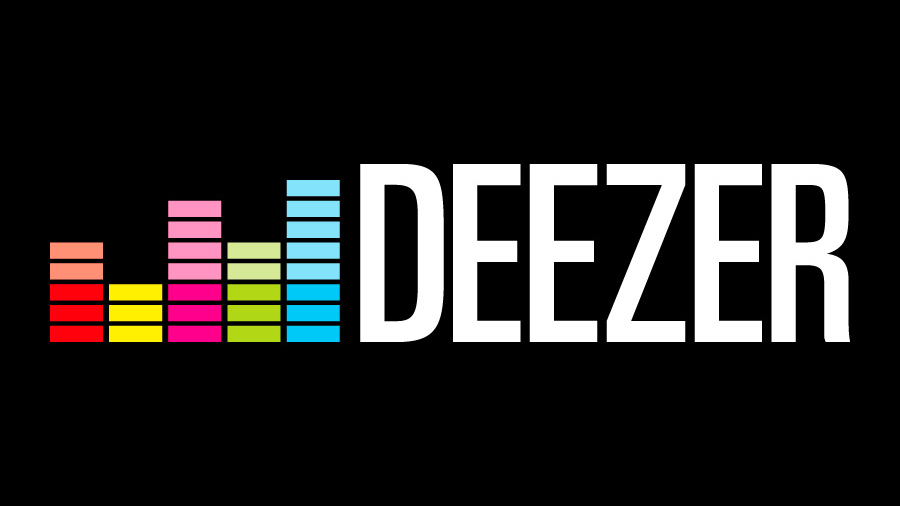
While the number of Tidal subscribers subsided and Pandora plotted its grand music-on-demand service, there was a team sitting in a grungy (in a good way) Parisian office wondering what kind of music you’d like to listen to to get you excited in the morning.
That company is Deezer, the European streaming music service that has high hopes to crack America’s ultra-competitive market while simultaneously expanding to new territories like Asia and South America.
On top of its ambitions in America, it wants to keep up appearances in France, its home country, where it says that half the citizens have had a Deezer account at some point in their lives, and sneak into more homes in neighboring countries like Germany, Austria and the UK.
It’s a tall order – and one that seems to get taller every time it turns around.
But it has a secret weapon. OK, it’s not that secret.
It’s an ever-changing algorithm that will create “your personal soundtrack” called Flow, and it’s been around for the last two years. But the company says Flow is going to get even better in the next few months, enough so that Deezer thinks it will be the key factor in closing the gap behind Apple Music and Spotify as one of the world’s top streaming services.
It’s a bold claim and one we’re pretty skeptical of – still, even after spending some serious face time with some of the 10 million-subscriber-strong service’s leadership team.
Sign up for breaking news, reviews, opinion, top tech deals, and more.
But healthy skepticism doesn’t scare them, and neither do Spotify and Apple Music.

Streaming by the numbers
The picture I’m painting of Deezer right now might be one of a bold, brash company that has a one-track mind of doing whatever it takes to usurp the competition. It’s not that.
It’s a relative newcomer to the international stage and, talking to the company’s Chief Marketing and Commercial Officer Golan Shaked, they know it.
But despite the fact that it’s only been in the US for four months now, here’s the thing Shaked wanted to emphasize – streaming music isn’t all that old and that means that nothing is set in stone.
In a population of 7 billion, only about 200 million pay for a music streaming service
Here’s some facts, provided by Shaked, that will put the industry in perspective: In a population of 7 billion people, only about 200 million pay for a music streaming service. Apple, one of the market leaders, recently announced that its streaming service has over 20 million paid subscribers and, at last count, Spotify has only around 40 million paid subscribers.
The point Shaked wants to make here is that, with only 2.85% of the world’s population paying for a music streaming service at the moment, the race is far from over.
Or, in his words: “Yes,” Shaked says, “I think there’s room for all of us.”
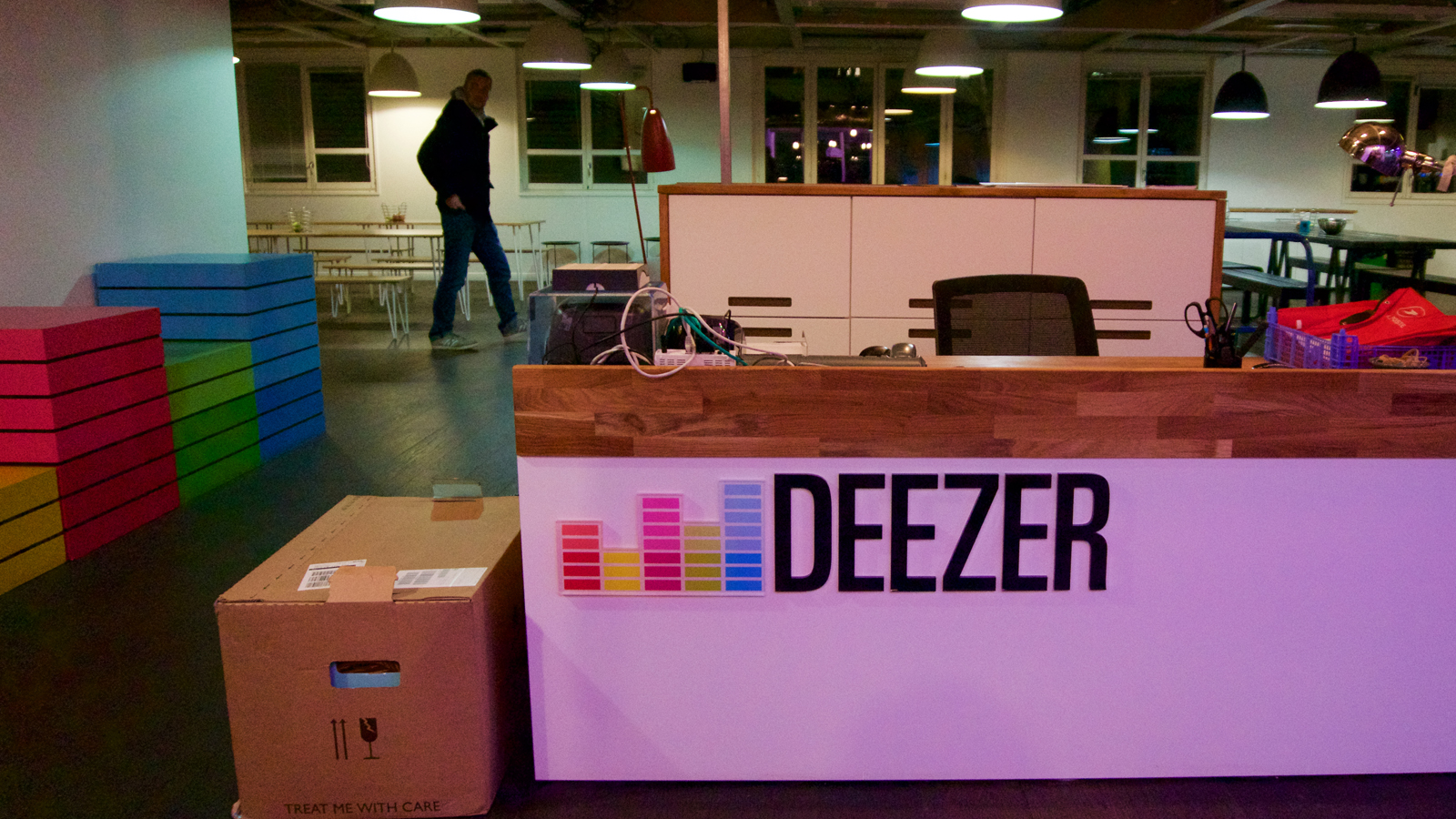
Deezer, he tells me, has about 10 million paying subscribers – a far cry from 40 million, but far ahead of a service like Tidal who only reached the 3 million mark a few months ago.
Deezer operates in 180 countries, more than any other streaming service on the market
Shaked says that Deezer has a few numerical advantages that he’s hoping will help the company close the gap, first and foremost of those is that Deezer currently operates in 180 countries, more than any other streaming service on the market.
Second, he points out, Deezer’s catalogue includes 43 million tracks – again, more than near anyone else out there. Finally, and this is a big one, seven out of nine of the company’s executive leadership team have been working at Deezer for 12 months or less.
“The industry is still young,” Shaked says. “We have a plan but, in the end, the decision to subscribe [to Deezer instead of the competition] will come down to the consumer.”
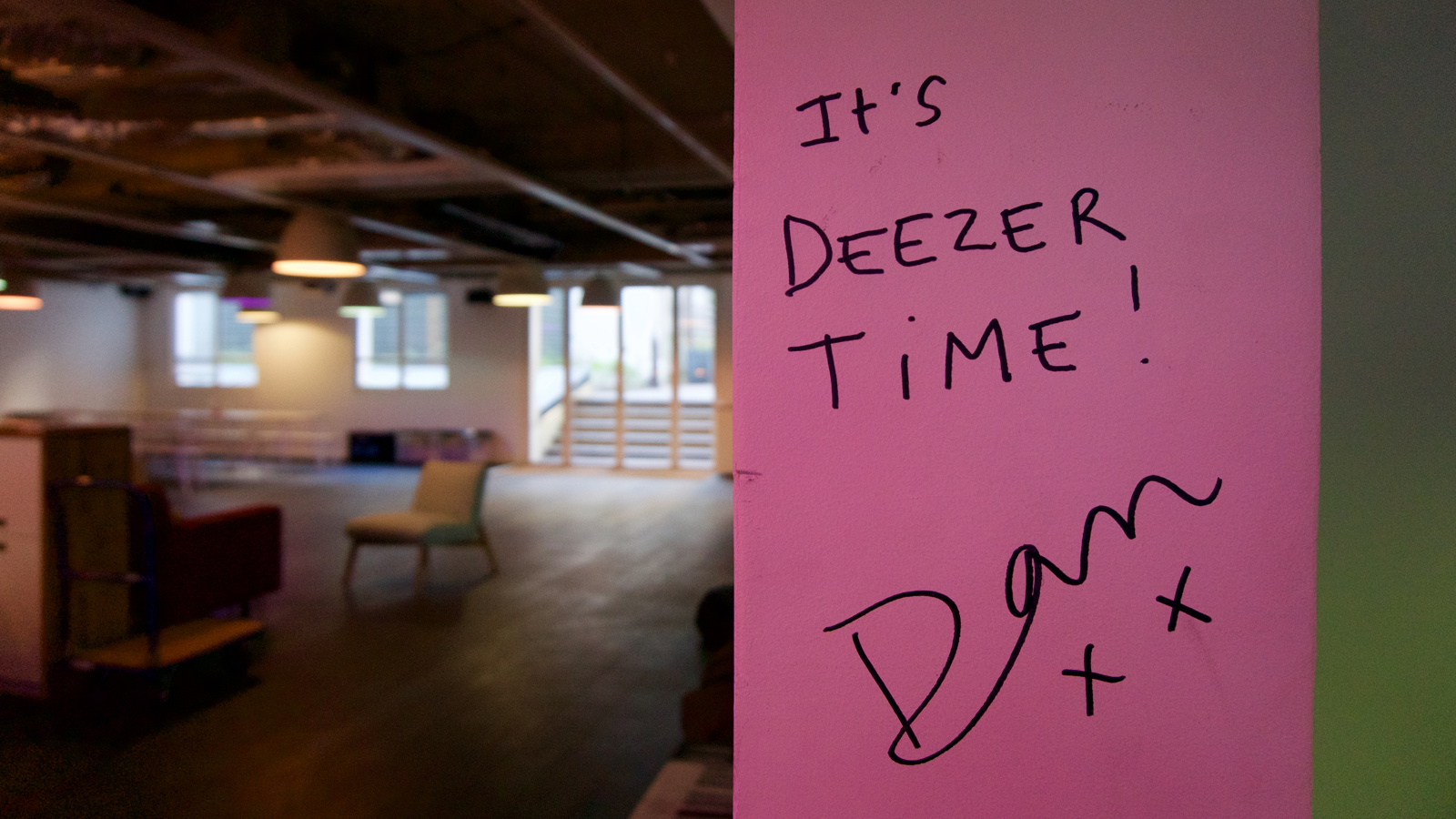
The smartest music algorithm ever
But despite some statistical advantages, Deezer’s going to have to prove it’s different enough to the competition if it wants to succeed where services like Rdio, Napster and others have failed – and that’s something it’s always struggled with.
Its best shot of succeeding, Shaked and his team say, is an algorithm they’ve cooked up called Flow that learns your music listening habits, takes into account your location and time of day and then spits out your favorite tunes without you ever having to lift a finger.
Deezer calls Flow a “lean back experience”. What that means is that while Spotify and Apple Music want you to slog through playlists and individual songs to find something you really want to listen to, Deezer’s hoping that it can figure you out all on its own.
The person in charge of making that happen? Alexander Holland, Deezer’s Chief Content and Product Officer. Holland’s come up with some pretty creative ways of figuring out what you want to listen to and when.
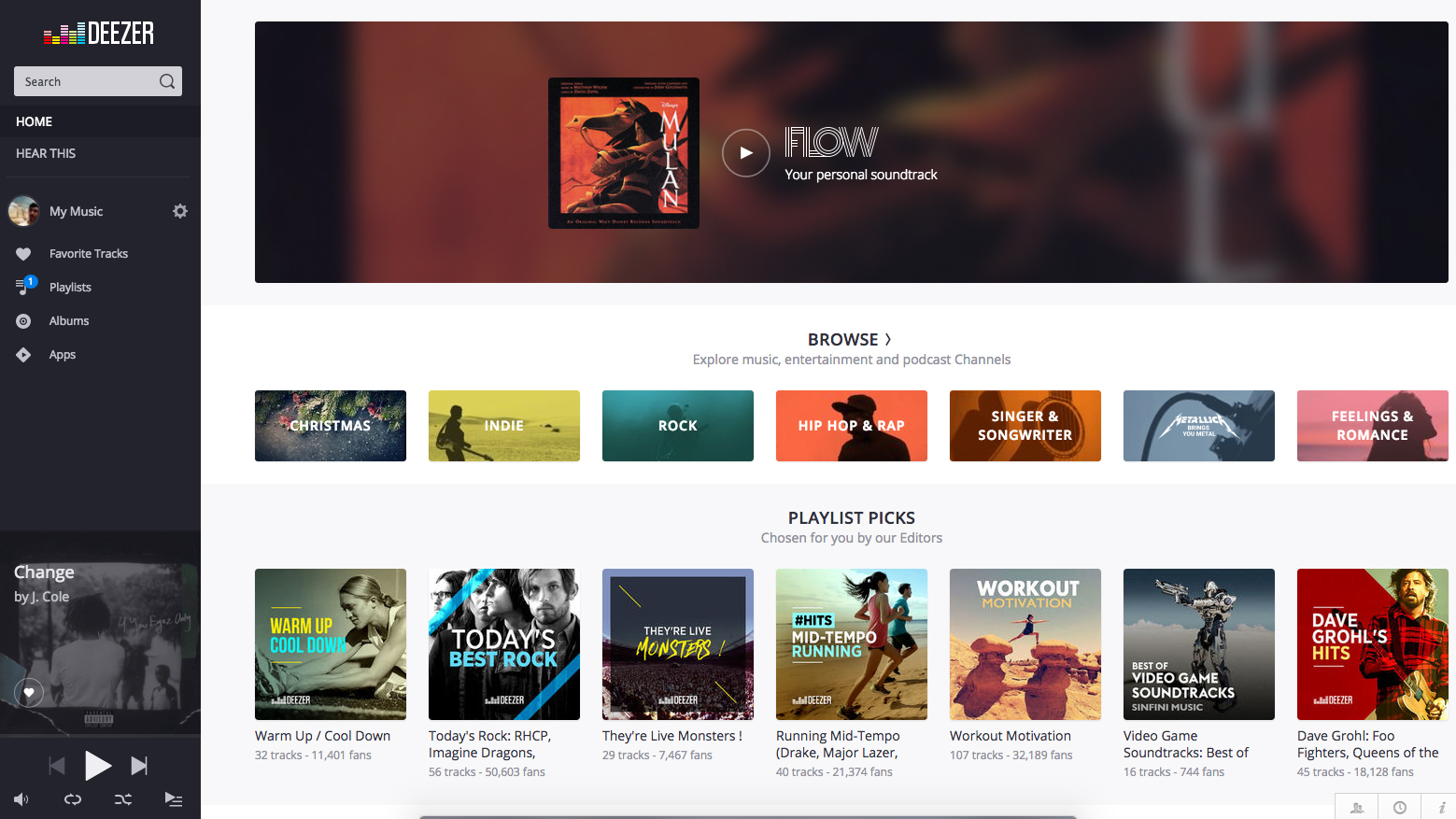
One of those ways is simple – Flow looks at what you’ve listened to in the past and, using metadata tags, spits out similar artists and songs that it categorizes as similar to the stuff you already like. This technique isn’t unique, obviously, as companies like Pandora, Spotify and others have been doing this for years.
Something Flow does that’s slightly more complex is that it takes into account what other people with similar music taste to you are listening to, and throws some of it your way to check out. If you’ve been listening to Red Hot Chili Peppers, for example, and based on the data it’s collected Flow knows that people who like the Chili Peppers also like Nirvana, you can expect that you’ll hear some of them soon, too.
Yes, Deezer’s music algorithm seriously uses your phone’s accelerometer to pick out your next song
But Holland’s pièce de résistance is almost certainly Flow’s ability to take into account where you are, what you have scheduled on your calendar and how fast you’re moving – yes, Deezer’s music algorithm seriously uses your phone’s accelerometer to pick out your next song. Holland calls this contextual intelligence and it’s the one area he’s bound and determined to improve over the first half of next year.
Some of the examples Holland provided was that if Deezer could sense you were on the train in the morning on the way to work, you might get some more uplifting music to put you in the right state of mind. Conversely, if Flow caught wind that you were at home vegetating on the couch, it might play something a bit more mellow – like jazz or classical. Finally, if Flow figures you’re at the gym thanks to the information it got from your accelerometer, the next song you get might be a high-octane rap or rock anthem to motivate you to go the extra mile.
Flow is certainly Deezer’s most promising feature, but on its own it might not be enough to take on Apple Music and Spotify. For that, the team has one last surprise: original content.
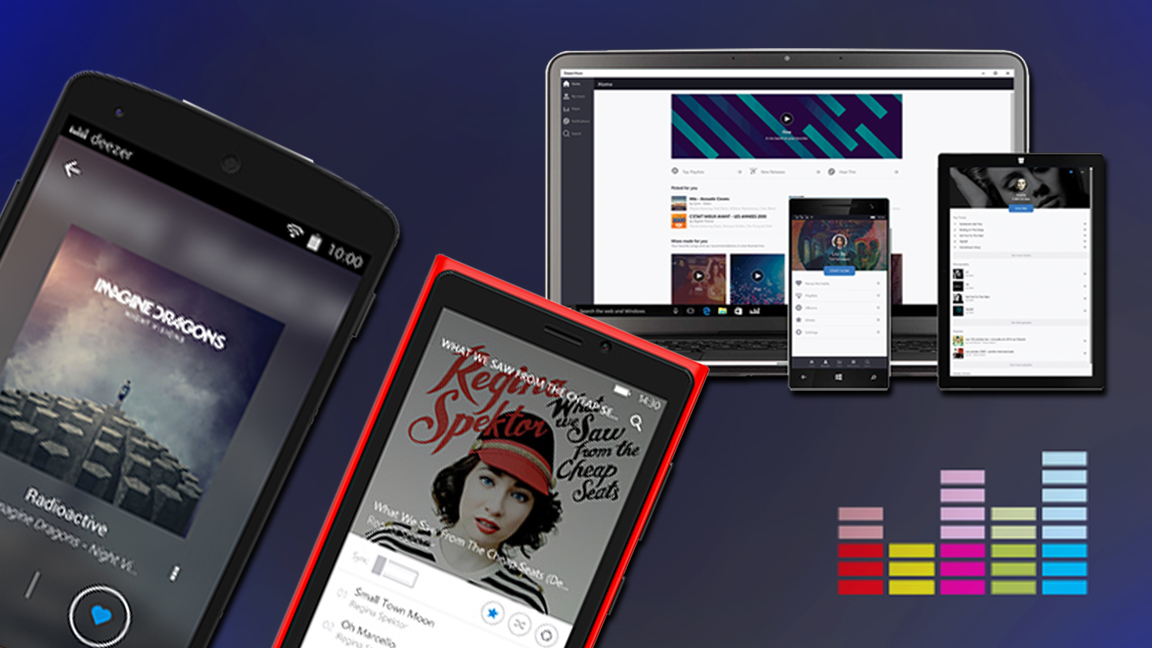
Pop on some podcasts
While Deezer could very easily chase down the latest album from artists like Beyonce and Drake, both Holland and Shaked insist that’s not the best route for the service’s success – licensing exclusive albums is expensive, it turns out, and a real pain when you’re trying to negotiate streaming rights for over 180 countries.
What they want to do instead is create new original content that Spotify and Apple Music can’t ever get their hands on. Think podcasts, radio shows and curated playlists. The man in charge of this? Deezer’s Head of Content and Editorial in the UK, Roman Tagoe.
Tagoe explained that his vision for the burgeoning streaming service is to create “TV-like serialized experiences” (think the award-winning podcast Serial and you’ll have the right idea) that have episodes and seasons.
"Deezer wants to create the sort of content that old school radio can't make or is too afraid to"
Roman Tagoe
“Deezer wants to create the sort of content that old school radio can't make or is too afraid to,” Tagoe says. “We're not looking at this as a traditional podcast plan either - we're developing a range of creative audio ideas that can range from ongoing, serial documentary formats to short-form daily hits and anything in between.”
It’s a plan that the company has already started in its home country with a radio documentary following the rise and fall of French rock idols Téléphone called “On the road with Les Insus” that it plans on debuting in January, and “Balls Up" - a five part part comedy podcast around the European Football Championships that it ran over the summer.
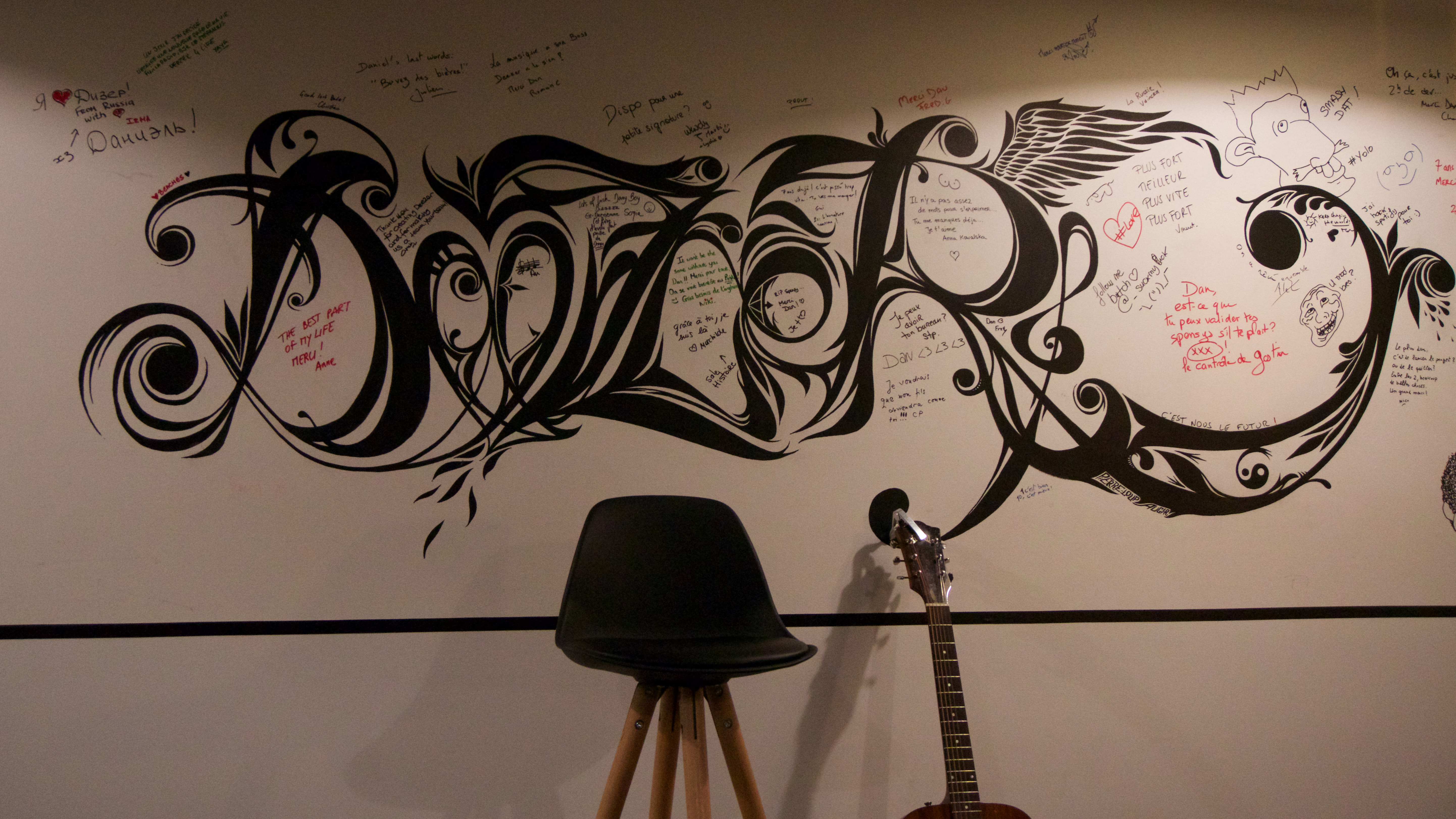
But that’s just the beginning for Deezer. Tagoe tells us that the service will eventually broaden its scope to include talk shows, more documentaries, commentated playlists and other “disruptive concepts” that he feels will feel right at home on the streaming music service.
“As well as music, we'll have comedy, lifestyle and sports programming that are perhaps not such a natural fit for other streaming services,” he says. “We know our audience is interested in a diverse selection of audio content ... and the response to the shows we've already launched has given us great guidance on where to go creatively.”
So how’s all this content going to fit into Flow? For the time being it won’t. But it’s something that Tagoe, Holland and Shaked are thinking about extensively for the future.
What I’ve learned after discussing the future of music streaming with Deezer’s executives is that the company exists in a nascent, turbulent industry – one that you can’t predict but instead requires you to, pardon the pun, go with the flow.
- These five services are the best music streaming services the world

Nick Pino is Managing Editor, TV and AV for TechRadar's sister site, Tom's Guide. Previously, he was the Senior Editor of Home Entertainment at TechRadar, covering TVs, headphones, speakers, video games, VR and streaming devices. He's also written for GamesRadar+, Official Xbox Magazine, PC Gamer and other outlets over the last decade, and he has a degree in computer science he's not using if anyone wants it.